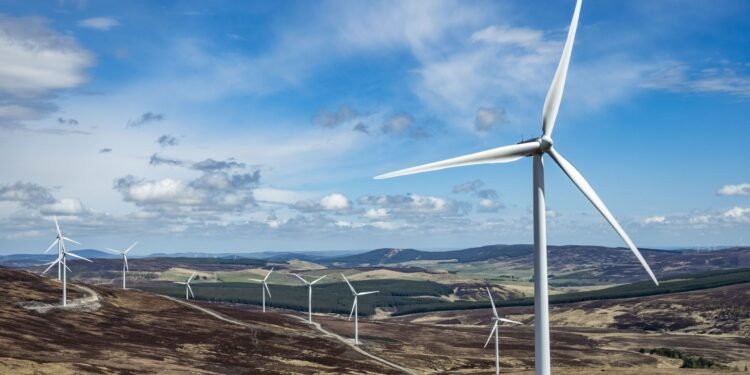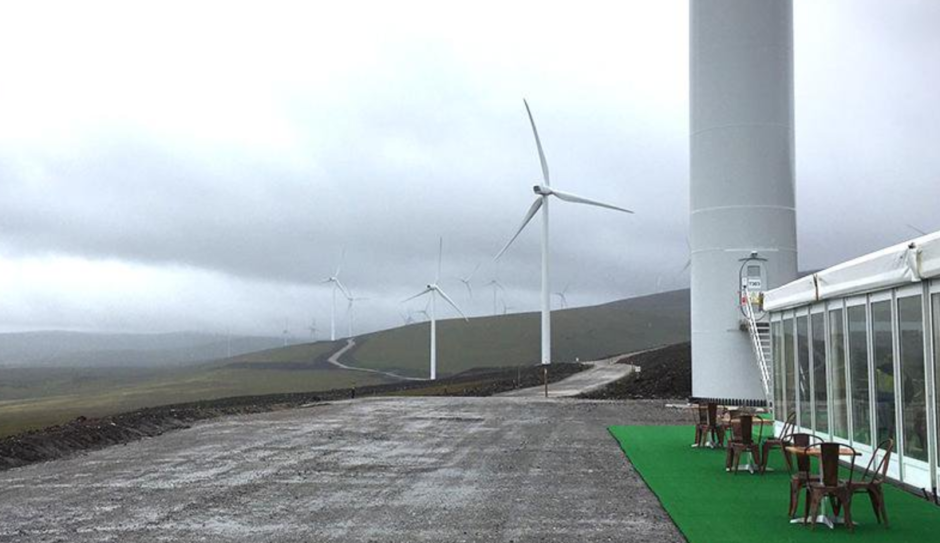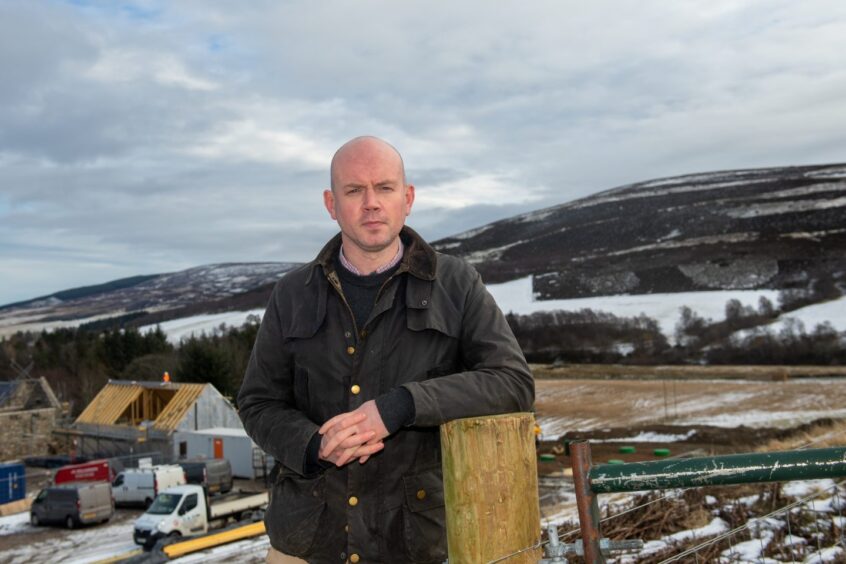Renewable energy investor Galileo Green Energy has revealed that it is developing proposals for the construction of a 533MW wind farm.
The project – known as the Dorenell Extension Wind Farm and Biodiversity Enhancement Plan – is expected to be constructed six miles south of Dufftown on land located within the Cabrach and Glenfiddich Estates, with details on the proposal to be published by Galileo on May 28 alongside numerous initial community consultations scheduled to begin following its release.
According to Galileo, the consultations will focus primarily on proposals involving 74 turbines (of which 61 will have a maximum tip height of 200m, and 13 with a tip height of 180m), a battery storage scheme, and a plan to enhance and restore 870 hectares of peatland.
Upon completion, the project is slated to be able to generate the equivalent annual power needs of 575,000 homes.
Galileo notes that the battery storage element will support wider decarbonisation of Scotland’s electricity grid, whereas the plan to regenerate peatland will allow for an extensive reduction in carbon losses from large areas of damaged peatland on site.
Senior project manager at Galileo Jason Morin mentioned ahead of the public consultation events that the project would “make an important contribution to Scotland’s 2045 net zero climate change emissions target, with the wind farm expected to displace some 690,000 tonnes of CO2 per year by reducing the use of gas-fired power generation – equivalent to taking 400,000 cars off the road”.
Investment in the community
The wind farm project also aims to support local communities surrounding the estates, introducing a £2.7 million annual community benefit fund to be invested in the local area each year, a total of more than £100mn over the wind farm’s 40-year lifespan, according to Morin.
Additionally, the company is looking for ways to provide free electricity to households within three miles of the project, investigating options for the local community to take a maximum of 5% ownership of the wind farm, and working with business support organisations to maximise contract opportunities for local businesses.
Analysis by independent economic consultants of the proposals have shown that the construction of the wind farm alone would provide £85mn to the Moray Council area, creating 1,200 jobs during the period of construction and 50 full-time roles over the project’s lifetime.
“We want to dedicate a significant part of this to provide free electricity to the households closest to the project, but we hope the scale of funding could also be transformational for community initiatives covering things like training, affordable housing and energy efficiency improvements for local homeowners,” Morin highlighted.
Regarding the community wealth fund, Morin noted that the community benefit fund would “be the biggest fund of its kind anywhere in the UK”.
The project manager concluded by saying that the company looked forward to “engaging with local people at our exhibitions, where local communities will have the opportunity to find out more and to provide their feedback.”
Local concerns
With 78 turbines already in operation in the Cabrach, certain members of the community have voiced concerns over Galileo’s plans to develop an additional 74-turbine extension at Dorenell – fearing that unique elements of the landscape will be lost.
Residents have also alleged that they have been victims of poor Scottish Government controls on wind farm implementation in the past, claiming businesses have been allowed to make huge profits at the expense of community interests.
Christopher Moran – owner of the 68,000-acre Cabrach and Glenfiddich Estates – is at the centre of the supposed controversy, with his estate being accused of failing to fully deliver on community housing benefits from previous wind farm projects – an allegation that is denied by the landowner.
In March, chief executive of the Cabrach Trust Jonathan Christie – an organisation formed to protect Cabrach’s future – remarked that locals had started to lose faith following consistent lack of action on their concerns for 20 years.
“To put it bluntly, if all third wave developments secure consent, the Cabrach unwittingly becomes the UK’s largest onshore wind park,” he told The Press and Journal.
Christie continued to say that the projects were preventing an “ambitious community regeneration strategy” from flourishing while causing damage to upland ecology, concluding that there was an “urgent requirement to apply the brakes, otherwise a community with the potential of becoming an exemplar for rural community regeneration in action becomes a case study of what happens when policy goes wrong”.
That same month, the existing 59-turbine Dorenell wind farm was fined £5.53mn by regulator Ofgem due to overcharging the National Grid through the constraints system in a bid to balance supply and demand.
The estate has so far said that constraints payments are handled by EDF Energy on behalf of the windfarm, and that it has no control over the process.
Recommended for you





 © Image: Kath Flannery/DC Thomson
© Image: Kath Flannery/DC Thomson





